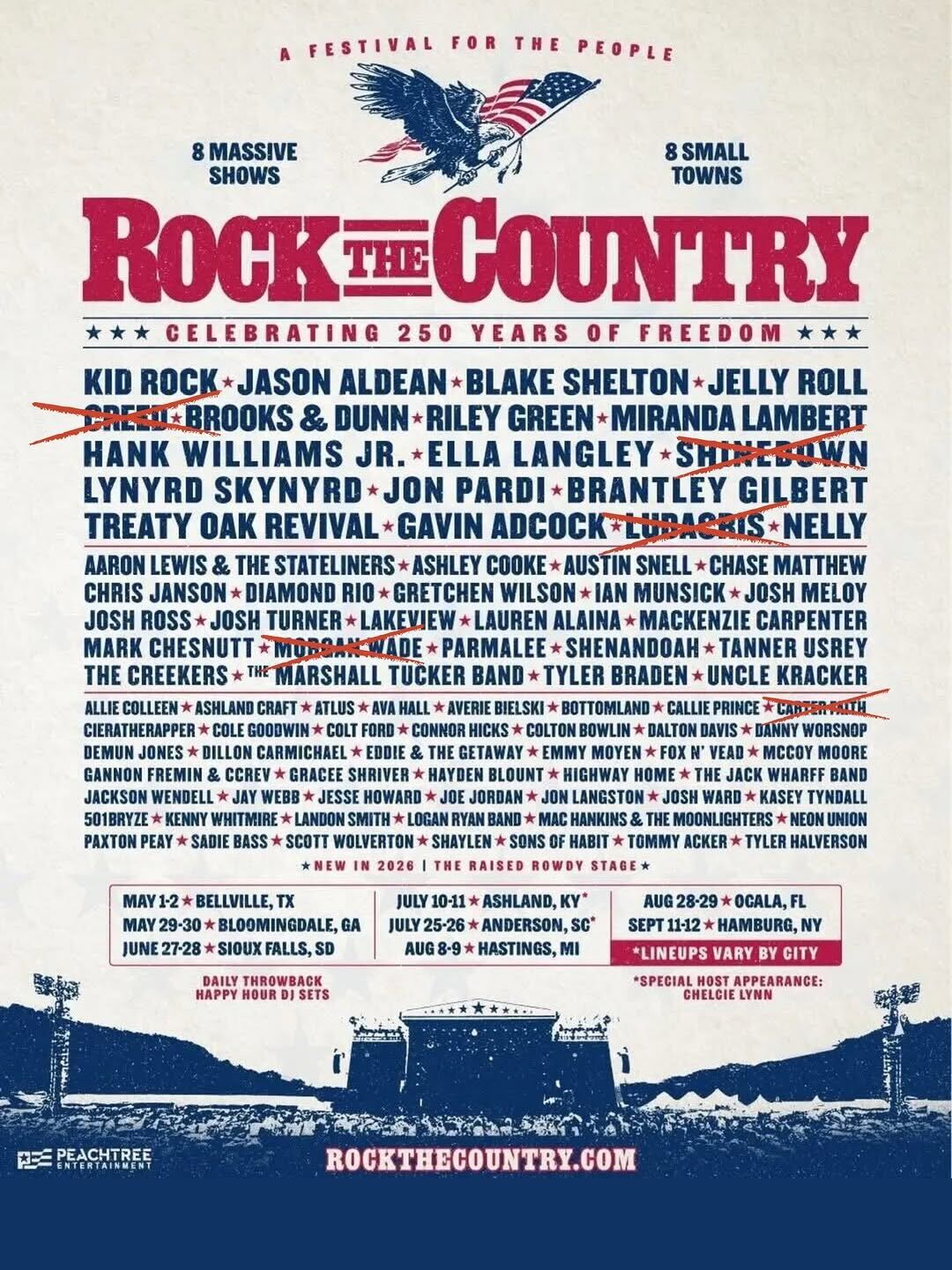An all-star lineup of musicians, songwriters, and executives have penned a letter to SiriusXM Radio parent company Liberty Media threatening to boycott the company over its opposition to a copyright law with wide support in the music industry. Paul McCartney, Don Henley, Stevie Nicks, Katy Perry, Charlie Puth, Tom Waits, Carole King, Carly Simon, Pink, Sia, John Legend, Mick Fleetwood, Steven Tyler and Joe Perry, Karen O and Nick Zinner, Chrissie Hynde, Shirley Manson, and the Pixies' Joey Santiago are among the acts who've signed a letter to SiriusXM expressing concerns over the company's opposition to a portion of the Music Modernization Act.
Obviously, given that SiriusXM has a dedicated Beatles station and oldies stations for each decade, a boycott from some of the most popular artists in music history would be harmful to their business. So, what's this all about? Let's back up.
The Music Modernization Act is a bill designed to update antiquated US copyright law for the digital era. It's a large and complicated bill, but put simply it's designed to improve and streamline royalty payments for songwriters, artists, and creatives. It has also been merged with what used to be called the CLASSICS Act -- short for Compensating Legacy Artists for their Songs, Service, and Important Contributions to Society -- which would grant federal copyright protection for sound recordings made before February 15, 1972. Currently, protection for anything older than that is left up to the states.
The MMA passed 415-0 in the House Of Representatives and made it through the Senate Judiciary Committee, and as Variety explains, today it's set to be "hotlined" -- "at which point any Senator has 24 hours in which to object to the bill passing out of the Senate without an official vote (Senate leadership does this for bills with high cosponsor counts that they know would sail through if a vote was forced or needed)." At this point the last obstacle to the bill's passage is opposition from SiriusXM.
Specifically, SiriusXM opposes the CLASSICS Act as it's currently written and is seeking amendments to the bill before it passes. This has occasioned the aforementioned open letter penned by Ross Golan -- a songwriter credited on songs such as Ariana Grande's "Dangerous Woman," Selena Gomez's "Same Old Love," and Flo Rida's "My House" -- expressing "grave concern" over SiriusXM standing against "the most consequential music legislation in 109 years." Golan continues, "It’s SiriusXM vs all of us. We can either fight to the bitter end or celebrate this victory together."
SiriusXM has responded with a letter of their own arguing that their position is reasonable: "Contrary to new reports and letters, this is really not about a SiriusXM victory, but implementing some simple, reasonable and straightforward amendments to MMA. There is nothing in our 'asks' that gut the MMA or kills the Act."
The full text of both letters can be found below. First, here's the letter from Golan and his music industry comrades:
Dear Greg Maffei, Scott Greenstein and Jim Meyer and Liberty Media Board of Directors Evan D. Malone, David E. Rapley, Larry E. Romrell, Brian M. Deevy, Andrea L. Wong, Robert R. Bennett, M. Ian G. Gilchrist and John C. Malone:
I’m writing you with grave concern about SiriusXM’s opposition to the Music Modernization Act (Classics Act included).
I’m CCing some of the greatest songwriters and artists in the history of the music business to show our solidarity in support of this legislation in its current form. We are all aware of your company’s objections and trepidation but let me say that this is an opportunity for SiriusXM to take a leadership position. As you are aware, 415 Representatives and 76 Senators have already cosponsored the MMA along with industry consensus. It’s SiriusXM vs all of us. We can either fight to the bitter end or celebrate this victory together. Rather than watch bad press and ill will pile up against SiriusXM, why not come out supporting the most consequential music legislation in 109 years? We do not want to fight and boycott your company but we will as we have other opponents. Stand with us! Be brave and take credit for being the heroes who helped the MMA become historic law! Momentum is building against SiriusXM and you still have an opportunity to come out on the right side of history. We look forward to your endorsement but the fire is burning and only you can put this out.
Sincerely yours,
Ross Golan and Legends CC-ed Here
Artists/Musicians:
Sir Paul McCartney
Don Henley
Stevie Nicks
Mick Fleetwood
Steven Tyler
Joe Perry
Carole King
Carly Simon
Katy Perry
P!nk
OneRepublic: Ryan Tedder
Sia
John Legend
Adam Dorn
Adam Gorgoni
Alessia Cara
All-4-One
Aloe Blacc
Andrew Wyatt (Miike Snow band)
Bebe Rexha
Bird and The Bee: Inara George
Carly Simon
Carole King
Charlie Puth
Chris Isaak
Colbie Caillat
Eddie Money
Eurythmics: Dave Stewart
Garbage: Shirley Manson
Gloria & Emilio Estefan
Grace VanderWaal
Hootie & the Blowfish: Darius Rucker, Mark Bryan, Dean Felber and Jim Sonefeld
Jason Derulo
Jefferson Airplane: Grace Slick, Jorma Kaukonen, and Jack Casady
Jewel
Kasim Sulton
KC and The Sunshine Band: Harry Casey
Kevin Cronin
Little Feet: Lowell George Estate
Lori McKenna
LP
Melissa Manchester
Mindi Abair
Nelly Furtado
Rascal Flatts: Gary LeVox
Rusty Anderson
Sean Lennon
Semisonic: Dan Wilson
Sonic Youth: Kim Gordon
The Doors: John Densmore Robby Krieger
The Fray
The Mamas And The Papas: Michelle Phillips
The Pixies: Joey Santiago
The Pretenders: Chrissie Hynde
Thomas Rhett
Tom Higgenson: Plain White T’s
Tom Waits
Yeah Yeah Yeahs: Karen O and Nick ZinnerSongwriters:
Ali Tamposi
Allee Willis
Ammar Malik
Andre Lindal
Andreas Carlsson
Andrew Cedar
Anne Preven
Anthony Preston
Antonia Armato
Ashley Gorley
Benny Blanco
Bert Berns
Billy Mann
Billy Steinberg
Bonnie McKee
Bryan Michael-Cox
Burt Bacharach
Busbee
Captain Cuts
Charlie Handsome
Claude Kelley
Claudia Brant
Cynthia Weil & Barry Man
Dallas Davidson
Damon Boot
Damon Bunetta
Damon Sharpe
Danielle Brisebois
Dave Bassett
David Hodges
David Simmons
Desmond Child
Diane Warren
Doc Pomus Estate
Emile Ghantous
Erica Discoll
Erika Ender
Ester Dean
Eve Nelson
Greg Kurstin
Greg Wells
Harvey Mason
Ian Kirkpatrick
J Kash
Jack Kugell
James Newton Howard
Jason Evigan
Jay Landers
Jayson Dezuzio
Jeff Trott
Jesse Shatkin
John Ryan
Jud Friedman
Julian Bunetta
Justin Tranter
Kara DioGuardi
Lauren Christy
Linda Perry
Lindy Robbins
Louis Bell
Louise Goffin
Luke Laird
Marc Shaiman
Max Martin
Michelle Lewis
Mike Stoller
Mozella
Neil Ormandy
Nicolle Galyon
Nolan Lambroza
Oak Felder
Oliver Heldens
Richard Jay Alexander
Rick Nowels
Ricky Reed
Rock Mafia
Ross Copperman
Rudy Perez
Sam Hollander
Sarah Aarons
Sarah Hudson
Savan Kotecha
Shelly Peiken
Simon Wilcox
Skylar Grey
Stargate
Stephen Bray
Steve Lashley
Steve Solomon
Steven Lashley
Stuart Crichton
The Heavyweights
The Stereotypes
Tim James
Toby Gad
Troy Verges
Wally Gagel
Walter Afanassief
Wayne Kirkpatrick
Xandy Berry
Zach CrowellExecutives/Business:
Aaron Bay Schuck
Aaron Rosenberg
Adam Anders
Alastair Lloyd Webber
Amanda Berman
Amanda Berman
Andrew Gould
Andrew Luftman
Ben Mawson
Ben Singer
Brendan Okrent
Connie Lim
Dan Petel
David Gray
Dina LaPolt
Ed Howard
Ed Millet
Jeff Jampol
Jon Lind
Justin Frazier
Katie Vinten
Kenny Aronoff
Kristina Grossman
Larry Wade
Lou Taylor
Maria Egan
Rachel Kurstin
Sheryl Louis
Susan GencoCompanies:
Modest Management
Big Deal Music
Milk And Honey
Mega House Music Mgmt.
Decible Entertainment
And here's SiriusXM's response:
Over the past several weeks, we have been the subject of some stinging attacks from the music community and artists regarding our views on the Music Modernization Act. Contrary to new reports and letters, this is really not about a SiriusXM victory, but implementing some simple, reasonable and straightforward amendments to MMA. There is nothing in our "asks" that gut the MMA or kills the Act. So let’s talk about the substance of the amendments we propose, because we truly do not understand the objections or why these concepts have incited such a holy war.
Contrary to the accusations, SiriusXM has proposed three simple amendments to the MMA.
First, SiriusXM has asked that the CLASSICS Act recognize that it has already licensed all of the pre-1972 works it uses. This amendment would ensure that artists – the people who are supposed to be at the heart of the MMA – receive 50% of the monies under those existing licenses. Is that unfair? Just today, Neil Diamond wrote in the LA Times that: "I receive a small amount of songwriting royalties, but no royalties as the recording artist." How can that happen? To date, SiriusXM has paid nearly $250 million dollars in pre-‘72 royalties to the record labels. We want to make sure that a fair share of the monies we have paid, and will pay, under these licenses gets to performers. Without this provision, artists may never see any of the money SiriusXM paid, and will pay, for the use of pre-1972 works.Artists not getting paid hurts our business!
Second, Sirius XM thinks that the fair standard to use in rate setting proceedings is the standard that Congress chose in 1995 and confirmed again in 1998 – which is called the 801(b) standard. However, we are willing to move the “willing buyer/willing seller” standard contained in the MMA. In exchange, we have asked for the same concession that the MMA grants to other digital music services, but we were left out of — simply that the rates that were set last year for five years now apply for ten years. We thought this was a fair compromise when we read the “new” MMA that was released this weekend by the Senate, and are willing to live by that compromise.
Third, SiriusXM is asking the simple question: “Why are we changing the rate court evidence standard for musical compositions in this legislation so that it gives another advantage to broadcasters over satellite radio and streaming services?” There is no policy rationale for this change to tilt the playing field further in their favor, and frankly no one has been able to explain it to us.It is only fair that we debate why the change to Section 114(i) is in the MMA.
So that is the sum total of our changes.There is nothing hidden or underhanded in our views. We have offered these simple amendments on a one-pager.We are prepared to work with the NMPA and RIAA to adopt these amendments, pass the MMA, and move the music industry forward.
If you've made it this far, congrats! Consider yourself educated.
UPDATE: Today (9/18), the Music Modernization Act (MMA) was passed unanimously in the US Senate, as Billboard reports. The Music Modernization Act was renamed the Orrin G. Hatch Music Modernization Act to honor the Republican Utah senator who will retire this year. Its goal is to update copyright protection to benefit songwriters and artists in the streaming age. The Senate version of the bill will now go back to the House — the bill passed in April with unilateral support — so that changes made to the bill can be approved. If the House approves the new version of the bill, the president has to sign off for it to become law.






